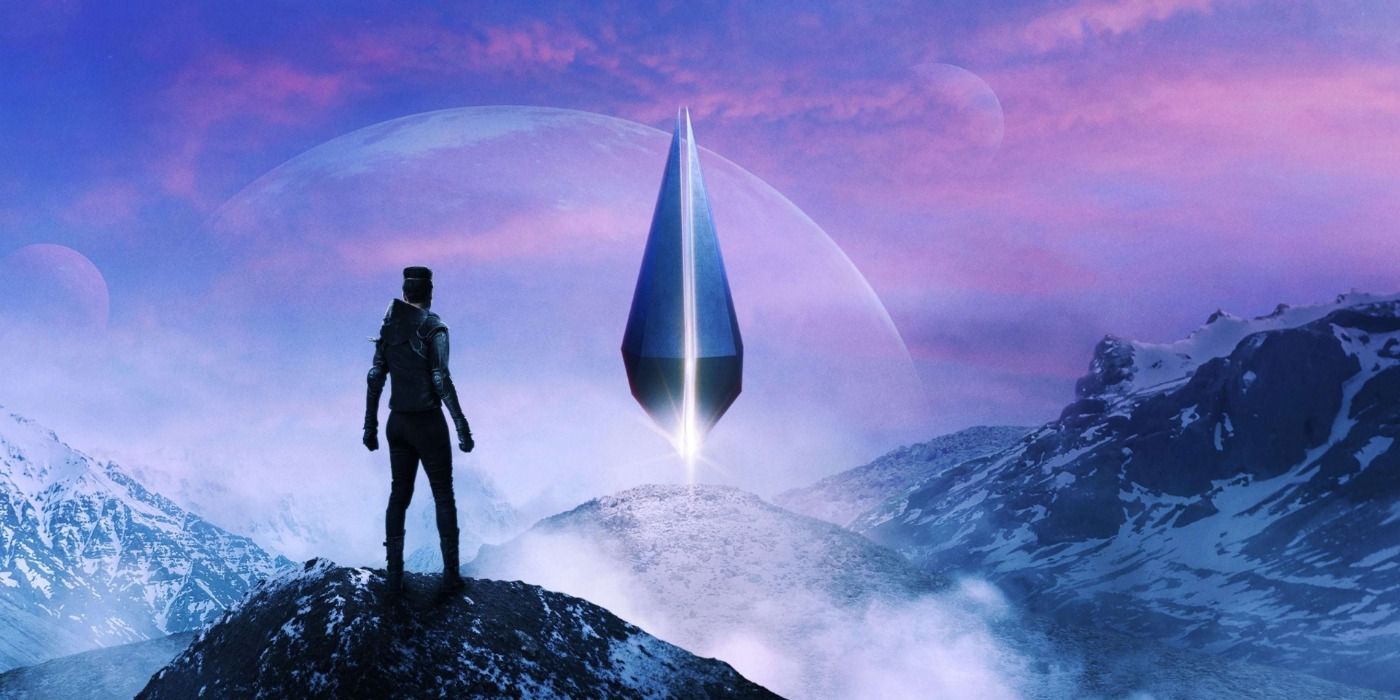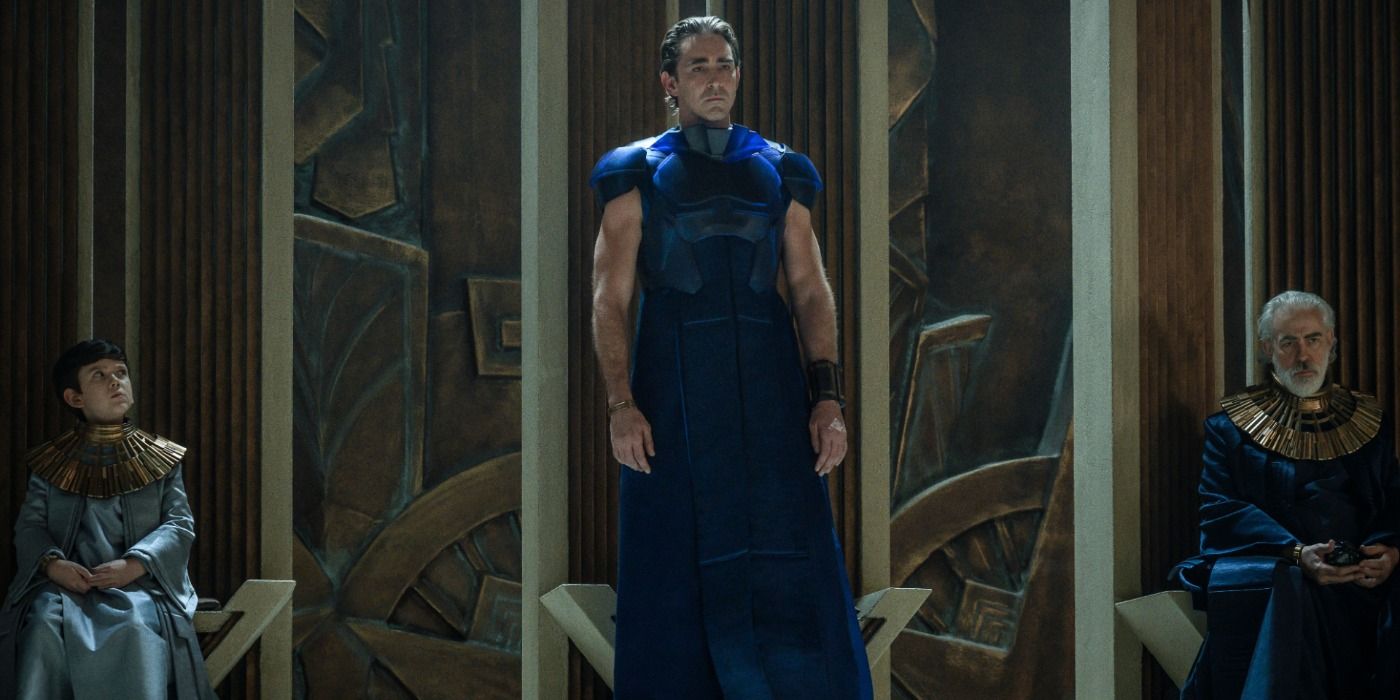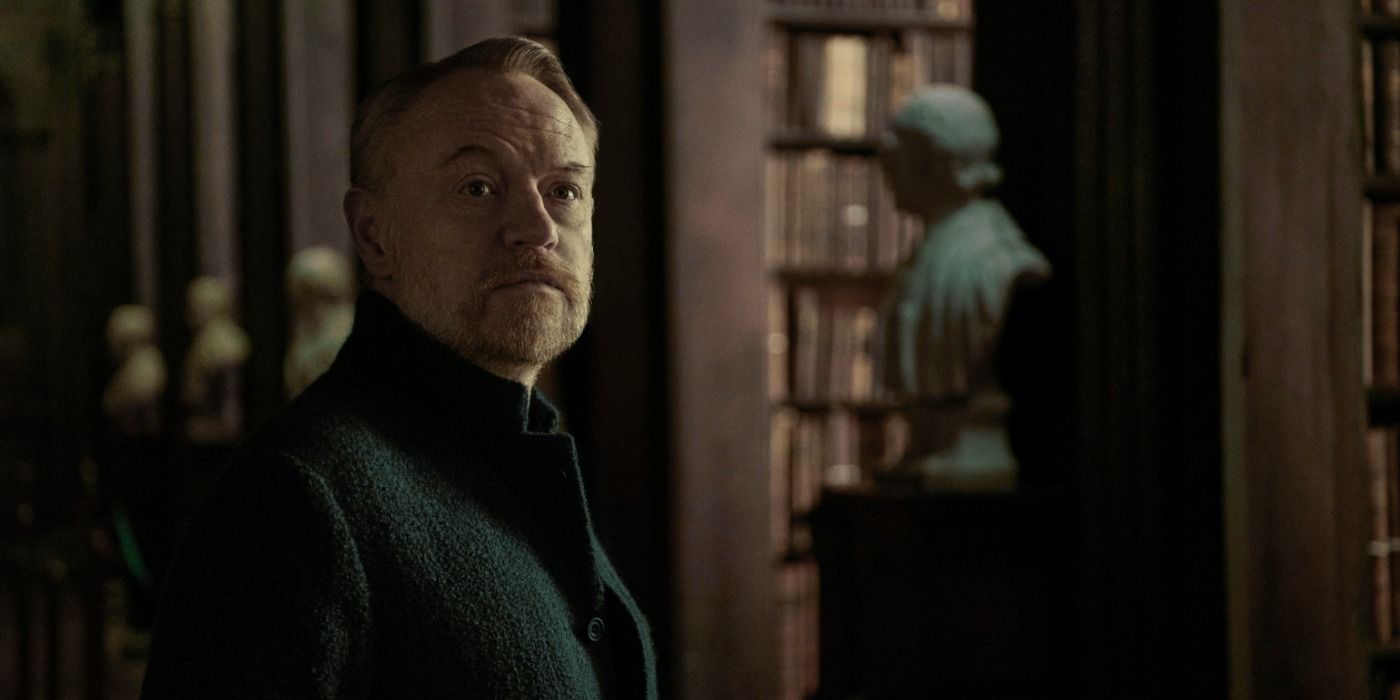
David Goyer is bringing Isaac Asimov's Foundation series to life for Apple TV+. In 1942, Isaac Asimov introduced readers to the world of Foundation - a distant future timeline in which the human race had expanded across the galaxy, founding an Empire that seemed to believe its rule was permanent. But the Emperor's Peace was destined to be disrupted when mathematician Hari Seldon mastered the art of psychohistory, a branch of mathematics that allowed him to predict a dark future for the galaxy.
This was the beginning of one of the most important science-fiction sagas of all time, one that profoundly shaped the genre as a whole. Its impact on popular culture is visible in everything from Star Wars to Star Trek; if the "Galactic Empire" sounds familiar, it's because George Lucas took it mainstream. And yet, for all that's the case, the cerebral nature of Foundation has made it difficult to adapt - and it doesn't help that the series spans a millennium.
Apple TV+ has signed off on a new Foundation series helmed by David Goyer, who dreams of an eight-season run. Ahead of the show's launch, Screen Rant spoke exclusively to David Goyer about why he feels now is the right time for Foundation - and how he's adapted these beloved novels.

Screen Rant: There's been a lot of attempts to adapt Foundation before in the past. What do you think makes Foundation so difficult to adapt, and what lessons have you learned from these other attempts?
David Goyer: Well, one of the obvious difficulties is that the first book is kind of anthological, and there are these enormous time-jumps that happen in between the stories, and a lot of the characters don't repeat from one story to the next. Previous attempts were by and large attempts to do it as a film or as a pair of films, in fact, I was offered the opportunity to adapt it twice myself as a film. Both times I turned it down because I didn't think it was possible to adapt it as a film or even a series of films.
But then the advent of streaming happened, and you started seeing these large, sprawling, epic novelistic shows taking place like Game of Thrones. It was over the last five years or so that I started to think it might be the right time for Foundation, there might be the right format for Foundation, if I don't have to condense the story into nine hours, but I have potentially the ability to tell the story over 60, or 70, or 80 hours, maybe it could be done. But at the time, the rights weren't available, and then about three years ago the rights became available, and I leapt at it. I said, "I think now is the time."
Having seen a few of the episodes, no spoilers, I'm glad you did. Absolutely loved the production. One of the things that I think stands out really strongly in Foundation is the incredible world-building. It has these incredible, lavish worlds, absolutely beautiful. How did you ensure each planet felt so different?
David Goyer: You know, that was key. The first thing that I convinced Skydance and Apple of is that I really wanted to film as much of this as possible on location. We ultimately filmed season 1 in six different countries. I felt that was critical to give it a sense of verisimilitude, as though you're really there, and by and large we split up the different worlds in different countries, in different environments. There are a tremendous amount of visual effects, but we always did as many things for real as possible, or in-camera, or at least as a starting point for that. And I kept hammering home on my design team that I wanted each world, each culture, to feel very distinctive. And I think we were fairly successful in that regard.
I can imagine, though, that that posed a particular challenge over the last year. How did you navigate all the issues with the pandemic with this production?
David Goyer: Prior to the pandemic, I had already told the people at Apple and Skydance - and my wife - that this was the hardest, most difficult project I'd ever been involved with - and that was before COVID! When COVID hit, it was so hard that it just became almost surreal, and - I don't know what to tell you!
The thing that kept us going was the cast, the crew, myself - when COVID hit, we'd filmed about three episodes, and we all felt like we were possibly making something unique, and different, and worthy, and that's what kept us going. But it was very difficult, I won't lie. We were bubbled up, we would travel from country to country to country, and we were almost like a touring production. Those five or six hundred people didn't interact with the rest of society for over the course of a year, and we would film in one country and move to another country, and move to another country. I'm so proud of the cast and crew for everything that we endured, it brought us all very close together. But, the thing that kept us going was we felt like we were making something meaningful.
Asimov's books are absolutely tremendous, but they're more concept-driven than they are character-driven. How did you adapt the characters to make them work more strongly on TV?
David Goyer: Well, I think mostly tune in to TV for the characters, to invest in characters' fates, to see who will live or die. The books, as you mentioned... they're not particularly character studied per se, and I think the secret sauce for adapting Foundation was really rooting it in emotion. Really rooting it in character.
I revere the books, I think the fans of the books will see that we've adhered to the general ideas and themes of the books and characters, it's sort of a remix. But if the show's going to work, it needs to appeal to people who haven't read the books, it needs to appeal to people who aren't even science-fiction fans, and I think the key to that is rooting everything in emotion, is grounding everything in emotion, and taking Asimov's themes and figuring out ways that those can be reflected in the characters.

How did you find the emotional center of characters who can sometimes be quite cerebral, such as Hari (Jared Harris)? How did you find the emotional center of those characters?
David Goyer: For me, with Hari, the thing that I talked a lot about with Jared, was the tremendous weight that Hari Seldon feels on his shoulders. He literally feels the weight of the galaxy on his shoulders, and he knows that he's going to enact this plan that will spool out far beyond his lifetime, and far beyond the lifetimes of the people that are initially part of the Foundation. So he's got that weight hanging on him, and you see it in some of the scenes.
One of the things that's brilliant about Jared is, we would film these scenes, and I would tell the director or the director of photography, even after some other characters had left the scene to just hold on Jared. There's a moment when Gaal [Lou Llobell] first meets Hari in the library, and they leave, and I just held on Jared - in reality for a good minute. And the great thing about Jared is, he stays in character until you yell, "Cut!" And what I wanted, and what we go, was he kind of slumps back, and you feel the weight of everything that's on him. And that was the key for Hari Seldon - the immense personal sacrifice that he has to make in order to pull off this plan.
At the same time, you've still got a lot of the incredible sci-fi ideas that Asimov developed - the Jump Drives, the psychohistory. How did you ground these concepts and make sure they were relatable to viewers?
David Goyer: Well, let's start with psychohistory. It's math. It's an equation. But psychohistory is an advanced form of mathematics, it's so complex that even in the stories, only Hari Seldon - at least initially, and Gaal Dornick - can even understand it. So I knew early on that I didn't want to use Roman numerals, that we were going to have a physical expression of psychohistory, and that's the math that you see bloom out of the prime radiant.
And so what I said to my team is I want the math to be beautiful. Even in itself, even if you don't understand it, I want it to be beautiful. And, I know this is a funny idea, but they said, "Well, what should it look like?" And I said, "It should look like the language of angels." Because I want it to feel like, when Hari and Gaal commune with the math, it's almost an ecstatic religious experience. So we did a lot of R&D to come up with what that looks like, but I think we pulled off something that's unique and beautiful.
Foundation premieres September 24 on Apple TV+.
from ScreenRant - Feed https://ift.tt/3tZcU4R

0 Comments